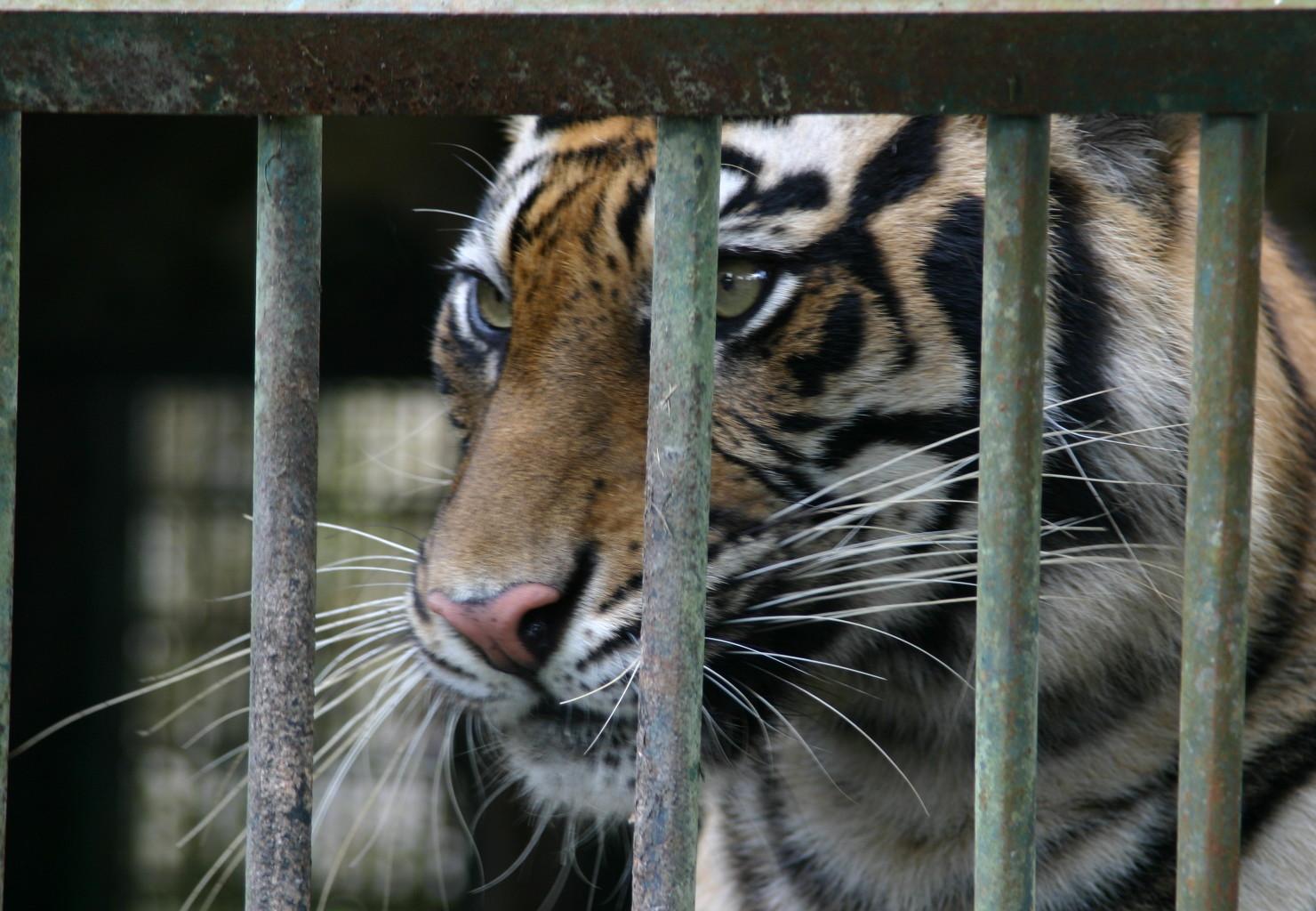
tigers traded around the world
More tigers live in captivity than are left in the wild
Tigers are a highly endangered species, with current estimates indicating there are only 4,400 left in the wild. Ambitious, science-based conservation efforts, along with anti-poaching and community-based engagement plans, are necessary to secure a future for these majestic and elusive big cats.
Unfortunately, there are more tigers living in captivity than are left in the wild, and this is a problem. The relentless demand for tigers – traded for their parts but also to be displayed commercially – significantly contributes to the decline of the species. Legal trade facilitates illegal trade and causes a real threat to wild tiger populations.

South Africa
The exploitation of big cats in South Africa continues to grow and includes not only indigenous species such as lions and leopards, but also exotic species like tigers and jaguars. All 5 big cats are being farmed and exploited in South Africa.
The demand for big cats has meant they are now intensively bred and commercially traded in vast numbers across the globe:
- Legally: the commercial trade means they can be bred in captivity and exploited for profit (for interactions, kept as pets, trophy hunting or for entertainment)
- Illegally: South Africa is contributing to an illegal trade by supplying live animals to breeding farms in Asia and trading parts for traditional medicine.
South Africa is farming numerous big cat species for the commercial international trade and is now the biggest exporter of big cats and their parts in the world. The illegal wildlife trade is the fourth largest criminal activity in the world, and it is being fueled by the trade in big cat products from South Africa. This is driving consumer demand, largely from Asia, for their parts.
Due to direct human influence, four (lion, tiger, leopard, jaguar) out of the five big cat species are facing unprecedented issues that are not only an animal welfare crisis but are also contributing to the decline of the species in the wild. We need to stop this.
Read more about the work to #BreakTheViciousCycle in our latest report.
Note: Any advertisements that may appear during the viewing of this video are unrelated to FOUR PAWS. We assume no liability for this content.
Europe
Shockingly, tigers born in captivity in Europe can still be traded for commercial purposes like circuses or for private keeping and for photo opportunities. To make matters worse, no legal authority or country knows how many tigers are currently kept in the European Union; this same situation of exploitation and unknown numbers applies to the captive tiger population in the United States and Asia as well.
In FOUR PAWS’ most recent report, Europe’s Second-Class Tigers, we reveal a shocking discrepancy between figures held by European authorities and the results of a recent investigation. This latest research highlights that the exact number of captive tigers is unknown by the relevant authorities and reveals the gaps in data pertaining to the numbers of big cats born, what happens to them during their lifetime and after they die.
In November 2018, FOUR PAWS published its first report on the European tiger trade, Protect our tigers: ban the commercial trade, which was shared with all the EU member states and the EU Commission.
More information on our campaign to end the tiger trade in Europe is available here.
Note: Any advertisements that may appear during the viewing of this video are unrelated to FOUR PAWS. We assume no liability for this content.
The tiger: a highly endangered species
In the course of the twentieth century, the world already lost over 90 percent of its tigers, while current estimates suggest that there are only around 3,900 tigers left in the wild. The relentless demand for tiger parts as well as for animals to be displayed commercially has significantly contributed to the decline of this species. Legal trade often facilitates illegal trade, posing a real threat to the population of wild tigers.
Shockingly, tigers born in Europe in captivity are still traded for commercial purposes: for the circus ring or private keeping, as well as for photo opportunities. In some European countries, you can even rent a tiger for private parties!
Read more about this on our new campaign site.
